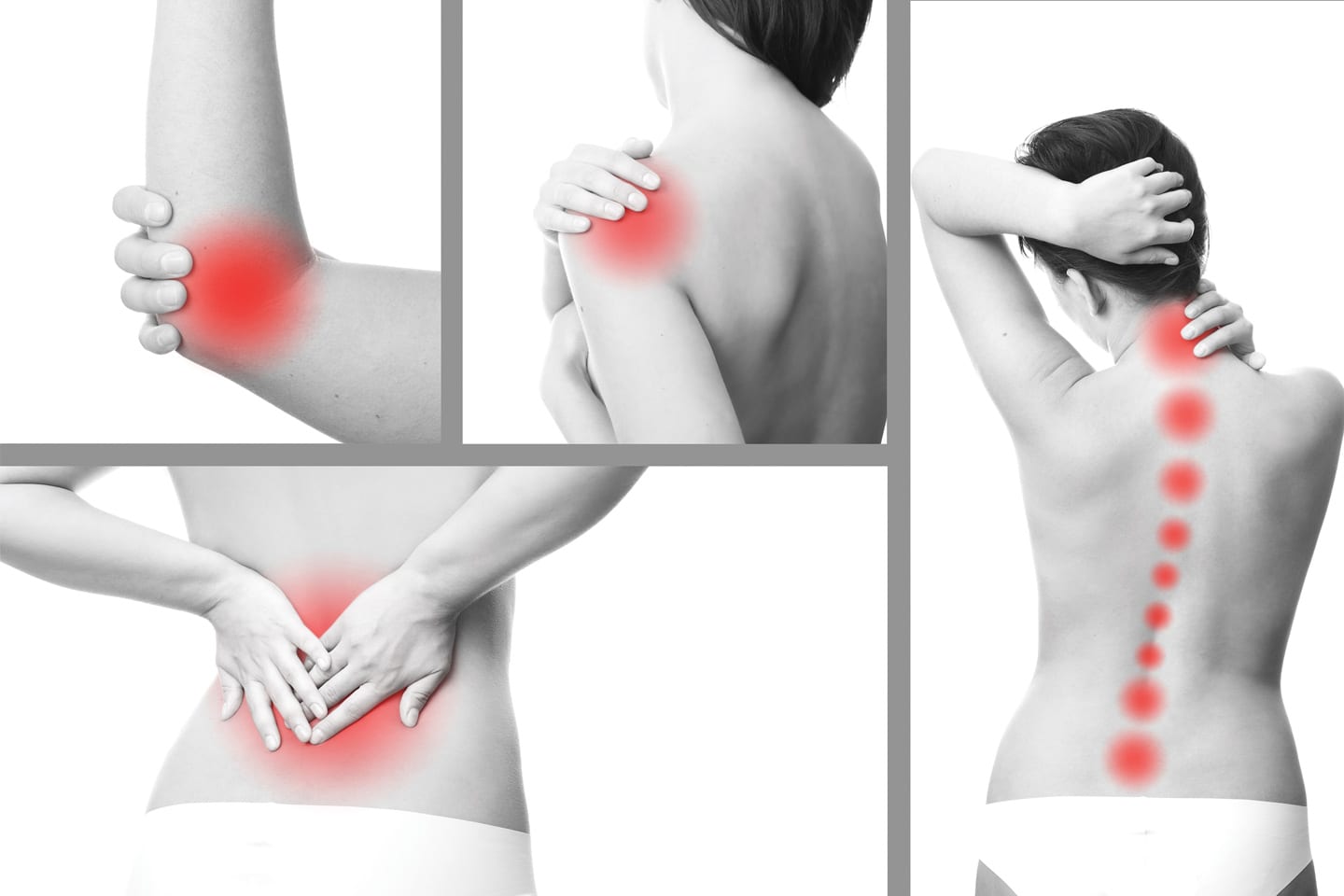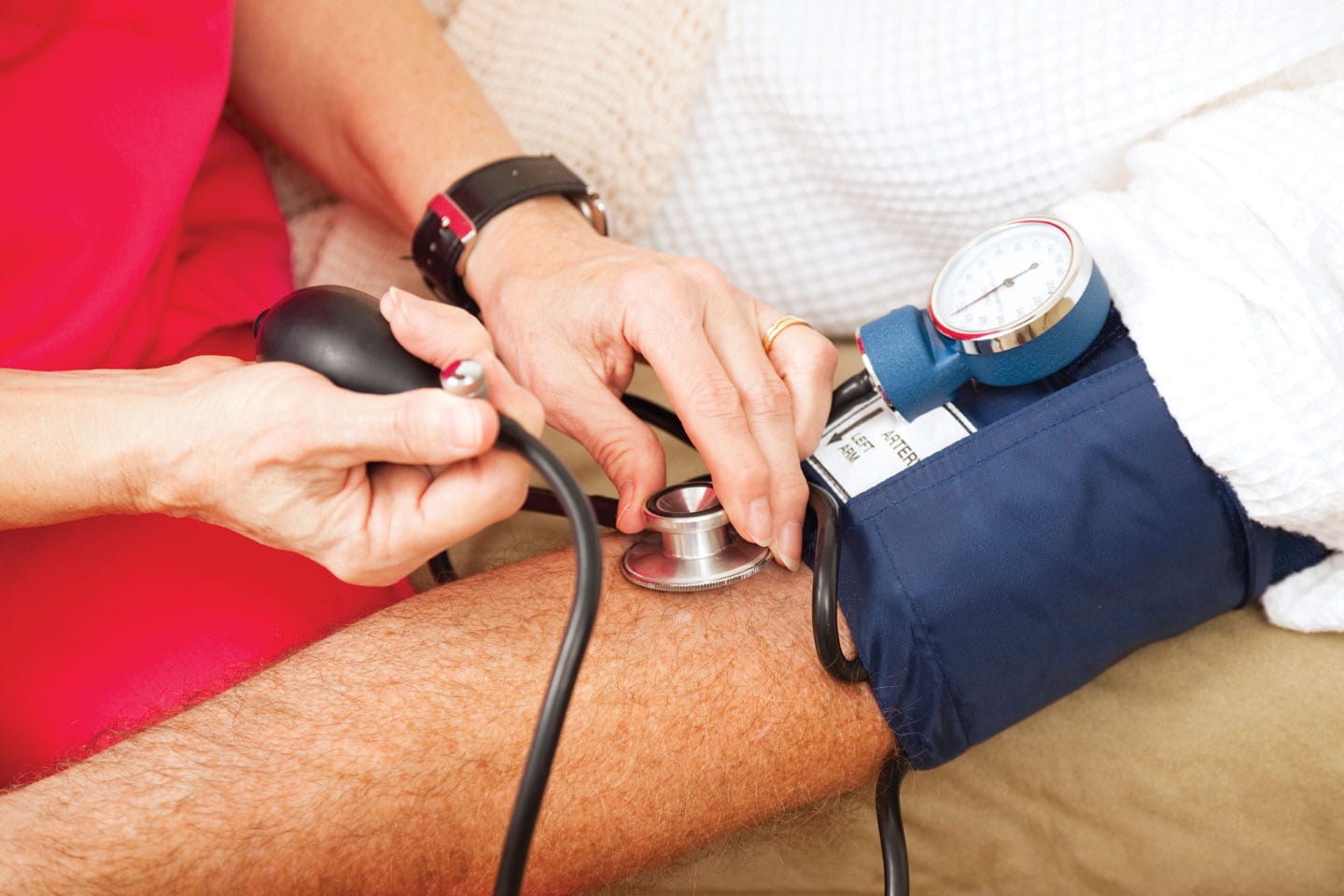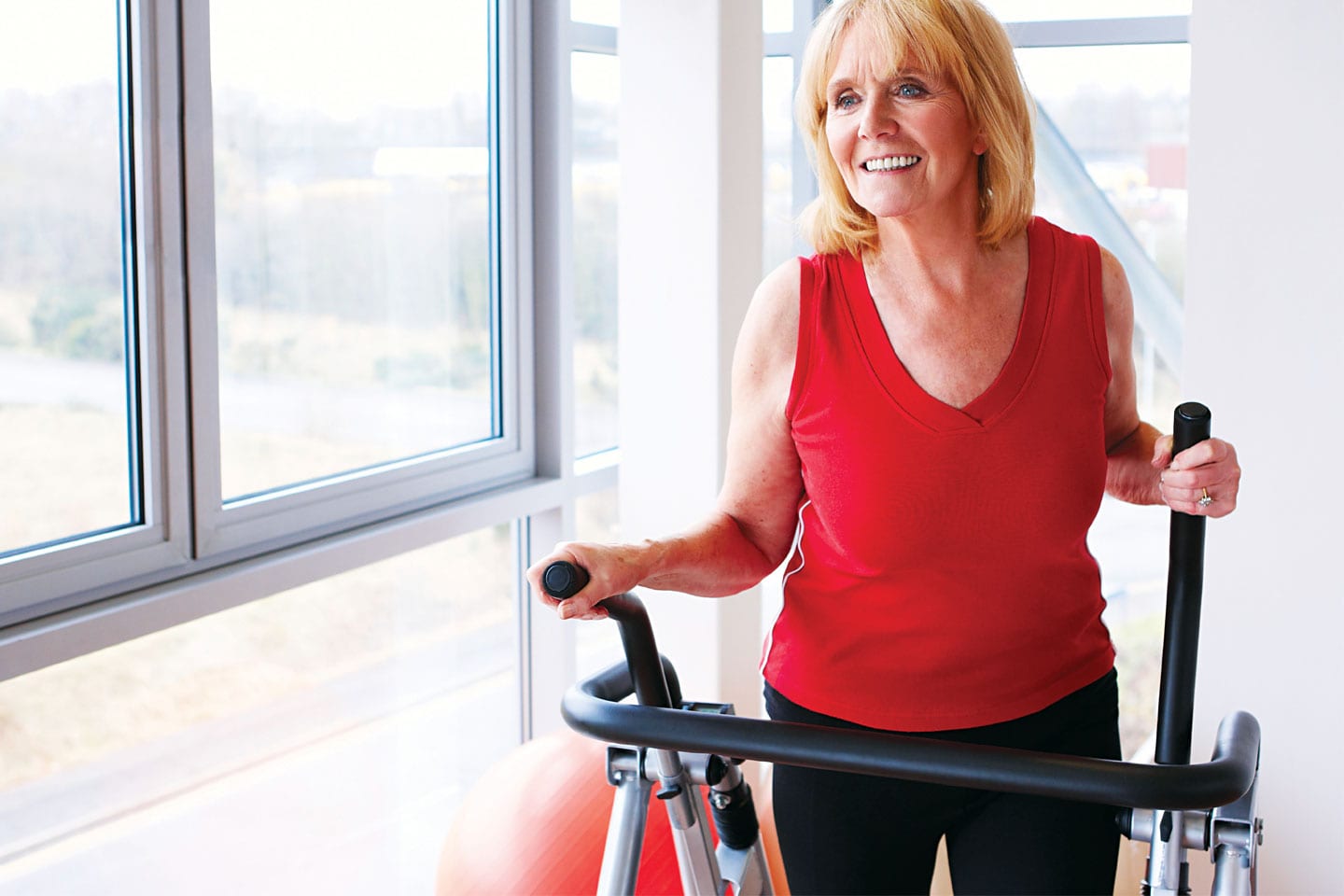When you maintain a diligent health routine throughout your life, longevity is often the reward. Read on to learn how to best take care of your body and which health screenings you should be scheduling to fit each stage of your life.
By Alexandra Hruz
In Your 20s & 30s


Family Medicine Physician, Parkridge Health System
As you continue to enjoy the glow and energy of youth, it’s also important to begin regular health checkups. Stay on top of your health, and it will pay off in the long run.
Blood PressureIf your blood pressure is at a normal level (120/80) or below, simply monitor your stats every two years. For those with higher numbers, visit a doctor once a year. According to Dr. Zynia Pua-Vines, a family medicine physician with Parkridge Medical Group – East Ridge, there are also ways to check it when you’re around and about. “It’s quite easy to find a blood pressure machine in drug stores and megamarts. These are great free tools, you can use in between your regular doctor visits, and if your findings are consistently elevated, you should definitely seek advice from your physician,” she says.
Eye Exam Eyes change with age, so be sure to see an ophthalmologist every two years to get an updated prescription or to confirm your vision is A-OK. When you turn 30, you’ll need to visit your eye doctor for a complete eye exam at least twice in the next ten years.
Dental Exam and Cleaning After leaving your parents’ house, you may have slacked off on your twice-a-year visits to the dentist. Get back on track as soon as possible—you can prevent major mouth problems in the future by being proactive in your 20s and 30s.
Breast Health Here’s the good news: the chance of breast cancer occurring for women in their 20s is low. But don’t let that stop you from staying diligent about breast health. Have a clinical breast exam (CBE) every three years, and be sure to discuss any issues or family history with your doctor.


Pap TestMark your calendars now—you should be scheduling a pap test every 2 to 3 years if you are 21 or older. And don’t forget about a gynecologic exam—the American College of Obstetricians and Gynecologists recommends that all women age 18 or older visit their gyno once a year.
Diabetes Screening In your 20s, risk factors (including family history, being overweight, and high blood pressure) might mean you’re on the path to an early diabetes prognosis. See a doctor if you’re concerned.
STD Screenings By being tested for HIV and STDs, you can help prevent the spread of communicable diseases.
Cholesterol Screening It might seem a little early for a cholesterol screening, but if you smoke, are obese, or have diabetes, high blood pressure, or a family history of heart disease, get checked out. Pick up the pace by scheduling appointments every five years starting at age 35. “Many times this is covered with your yearly physical,” explains Dr. Pua-Vines.
Thyroid Test Beginning at age 35, your doctor may recommend a thyroid test. This recommendation varies by professional medical associations, so talk with your general physician before scheduling.
Skin Cancer Screening According to the Skin Cancer Foundation, melanoma is the most common form of cancer for adults aged 25 to 29. The foundation recommends that everyone do head-to-toe self-examinations to check for unusual moles or skin discolorations. It also suggests protecting your skin with daily application of sunscreen.


In Your 40s


Family Medicine Physician, UT Erlanger Hixson Primary Care, Erlanger Health System
As you age, your metabolism slows by 2% each decade, and you’ll likely have muscle decline, lowered libido, and a drop in bone density. You may also be approaching menopause, as most women reach this milestone between ages 45 and 55.
Blood PressureFor those with normal blood pressure levels, getting checked out every two years is sufficient. If your numbers lie outside the normal range, head to the doctor more often.
Cholesterol Screening Unless you’re at an increased risk for heart disease, you can continue with regular screenings for cholesterol.
Skin Cancer Screening Age spots, moles, and facial wrinkles are more common now. Continue to perform monthly head-to-toe self exams and be sure to visit a dermatologist if you see anything irregular.
Eye Exam Your vision should be closely monitored in your fourth decade. The American Academy of Ophthalmology recommends that adults age 40 and older get a baseline eye disease screening.
Dental Exam and Cleaning If you’ve kept up with regular dental check-ups, your oral health should be in great shape. Continue to visit the dentist regularly and stay diligent about at-home care.
Breast Health Starting at age 40, you’ll need to have a clinical breast exam every year. You’ll also want to schedule a mammogram every 1 to 2 years in order to detect early signs of breast cancer. “Definitely start yearly mammograms at age 40,” says Dr. Terri Brunvoll, a family physician with UT Erlanger Hixson Primary Care. “If there is breast cancer in your family history, you’ll need one even earlier – a baseline mammogram at age 35.” The American Cancer Society says that some women – because of their family history, a genetic tendency, or certain other factors – should be screened with MRI in addition to mammograms (this is less than 2% of all women in the U.S.).


Pap test + HPV DNA Test Barring any irregular pap tests or other issues, continue with your regular gynecological checkups.
Diabetes Screening When 45 rolls around, your doctor may schedule you for a blood glucose test to determine if you might be at increased risk for diabetes.
Thyroid Test Starting in your 40s, your doc may recommend a thyroid test every few years to determine if you have any irregularities.
Bone Density If you have any risk factors for osteoporosis, you might want to consult with your doctor about an early bone density scan.
“As we age into our 40s and our bodies change, preventative care is key. It’s far better to treat well people than sick people,” says Dr. Brunvoll. “In addition to screenings, I would say that metabolism begins to slow starting at age 30, so you really have to be more careful about diet. You can’t eat the same things anymore without gaining weight, unless you’re increasing your activity. I recommend focusing on a Mediterranean diet, because it stresses raw fruits and vegetables and heart-healthy fats.”
She adds that many women during this phase of life experience more fatigue, irritability, and mood changes. “That’s why it’s extra important to have a good diet, get at least 7 to 8 hours of sleep, and exercise 150 minutes a week. That’s five 30-minute sessions.”


Years 50+


OB-GYN, Gynecologists Associated, Women’s Health Services
When you reach age 50, your estrogen levels have been slowly declining, and if you haven’t entered menopause yet (the average age for a U.S. woman is 51), you’ll soon discover what it’s all about.
Monitor for Heart Disease For women 50 and over, the average lifetime risk for heart disease and stroke increases by 40 to 50%. “Heart disease is the leading cause of death in women in the U.S.,” explains Dr. Pua-Vines. “You can also calculate your own risk by typing in your risk factors into the Framingham Risk Score Calculator or the Reynolds Risk Score, which uses an additional test called the High Sensitivity C-Reactive Protein. These are easily searchable on the internet.”
Skin Cancer Screening Skin cancer is more common in people aged 50 and over, so make head-to-toe self exams part of your regular routine. In addition to examining your skin monthly, MD Anderson recommends having any suspicious moles checked by a health care professional, and if you are at risk, having your skin examined at least once each year by a dermatologist.
Eye Exam Experts call for regular eye exams every five years until age 65, and after that, get checked every one to two years.
Dental Exam and Cleaning Barring any issues, a dental visit every year will suffice.
Breast Health According to the American Cancer Society, 80% of breast cancer cases happen after age 50. Schedule an annual mammogram and continue with clinical breast exams at your regular appointments.
Pap test + HPV DNA Test As your fifth decade begins, continue to have pap tests every three years or the combo pap/HPV test every five years.
“Need for a pap test will vary depending on the patient,” says Dr. William J. Moss, an OB-GYN with Women’s Health Services. “Patients who are considered high risk or have cervical problems will need closer monitoring. That is something women need to work out with their doctors.”
He continues. “One thing that is important to understand is that instance of ovarian cancer starts to increase significantly beginning at age 50. So while not required, an annual pelvic exam is warranted in your 50s, 60s, and on because other underlying conditions can be found at an early stage.”
Thyroid Test Talk with your doctor about undergoing a thyroid test, as women in their 50s are more likely to develop thyroid problems.
Bone Density Scan It’s estimated that 20% of women in their 50s already have osteoporosis and 52% have low bone mass. All women over 65 and those who are postmenopausal with fractures should be tested regularly. “At 50, it’s recommended that women start having bone density testing about every two years unless there is some abnormality,” says Dr. Moss. “They should also discuss with their health provider whether or not they should take medications to support bone health.”
Colon Cancer Screening A colonoscopy is one of the most accurate ways to determine if there is cancer present. You should schedule the procedure every 10 years, or more often if you have risk factors like family history or a history of colon polyps.
“As women age, they shouldn’t feel embarrassed about addressing any other issues they have concerning their health,” says Dr. Moss. “One issue that many women suffer from but feel hesitant to talk about is urinary incontinence. But if they are willing to address it, there is testing and all kinds of treatment that can help before it progresses and becomes even worse. So don’t be afraid to ask questions at your appointments in case a doctor overlooks something!”
See Related Articles








